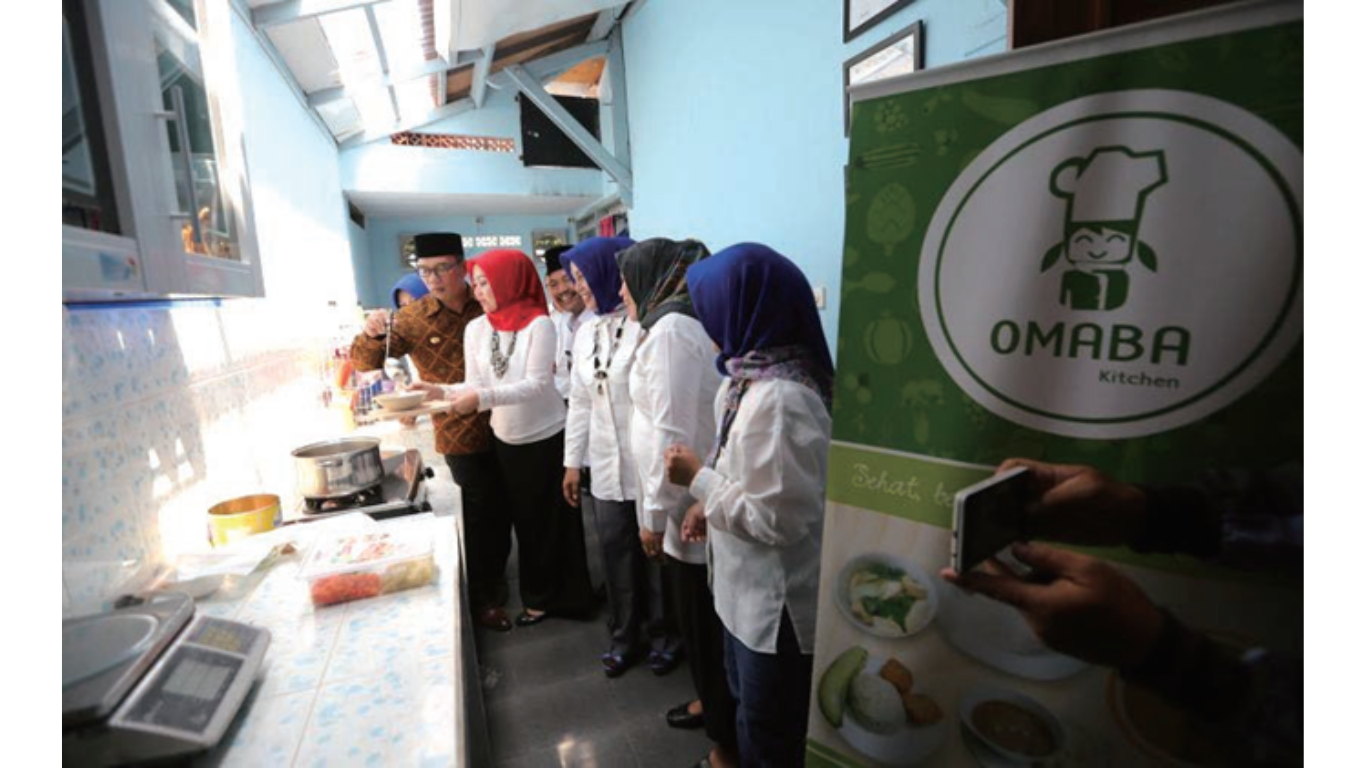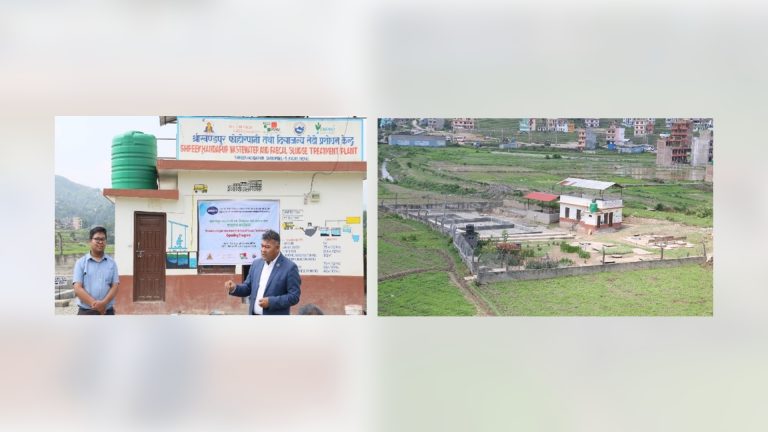BANDUNG, the capital of West Java Province (Indonesia), has been facing malnutrition and stunted growth of children under five years old. According to the National Population and Family Planning Board, 30% of the children under five in West Java, some 2.7 million, have stunted growth due to malnutrition.
The city has been addressing this issue through the OMaBa programme. OMaBa, standing for Ojek Makanan Balita (Toddler Food Ojek), is a local initiative developed to tackle the stunting challenge by cooking and delivering free nutritional food to toddlers. This programme ensures the targeted children receive and consume supplementary food without coercion.
The cooking centre in Cisaranten Kidul Village is a targeted response by the Riung Bandung Puskesmas, the district public health centre serving Bandung city, which identified malnutrition and stunted growth in the village in children under five.
Indonesia had access to Recovery Supplementary Feeding Programme (Program Pemberian Makanan Tambahan Pemulihan/PMT-P): a nutritional biscuit for children under five, but many children did not like the taste and their parents would instead sell the uneaten foodstuff. When Dr. Sonny Sondari, the head of the Public Health Service, and her colleagues discussed the issue with the nutrition department in 2013, a new idea emerged: to cook every day for good nutrition; thus was born OMaBa.
The city has estimated 6,000 families with children under five in the village, which is home to 32,667 residents spread across a large kampung. To ensure the entire neighbourhood is covered, the public health centre reached out to the local Pemberdayaan Kesejahteraan Keluarga (Empowering Family Welfare Group, or PKK), a state-sponsored organisation that exists in every village to promote local development. The women members of the PKK responded favourably, but needed guidance. Hence the city government enlisted the Bandung College of Health in Polytechnical Nutrition. The college built a mobile kitchen, hosted cooking demonstrations across the village and solicited corporate social responsibility funds from Pertamina, the national oil company.
For the first three years, PKK women cooked by themselves. The donated funds provided an allowance of 10,000 rupiah (US$0.70) per child per day for ingredients purchased from local markets. The initial phase provided meals six days per week for 11 children over three months, who were required to have their height and weight evaluated every month at the village public health centre. Children rotate in and out of the programme so that their height and weight can also be measured when their nutrition is the sole responsibility of their parents.
After three years, the PKK women decided that it would be more efficient to cook together. Additional donated funds allowed them to build a cooking centre at a central location in the village. Moto-taxis pick up prepared meals of rice, chicken roll, and vegetable soup and deliver them to points as far as seven kilometres away in the sprawling village of narrow streets. “Every day we change the varieties so the children will be interested in eating the supplement food,” said Raksanagara.
The cooking centre model has already been replicated in other cities in West and East Java as the issue is at a national level. “Indonesia’s population is growing rapidly and the growth becomes a concern when one-third of Indonesian children, about 8 million, are stunted,” said Nonie Kaban, Head of Programme for Indonesia at international food Non-Governmental Organisation Rikolto. “OMaBa is an innovative movement in terms of improving dietary nutrition for toddlers. Innovative collaboration among many parties is the key success factor of the sustainability of this programme.” This reliance on women is a positive development. “This movement has a very strong gender dimension because the main actors are women,” said Kaban. “Even many of the motorbike riders are women.”
Click here for the complete article.











